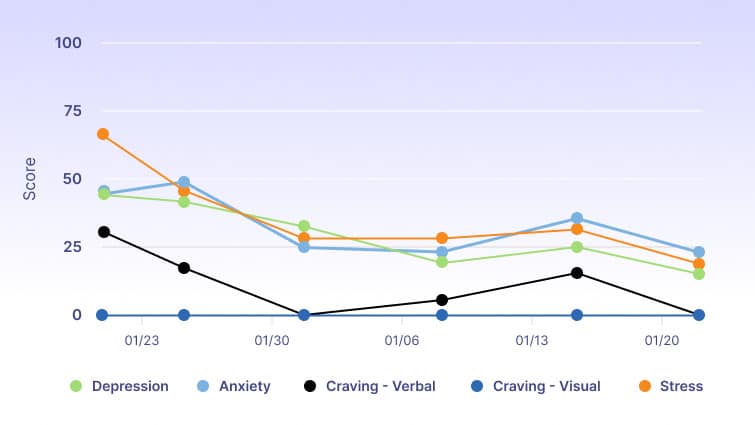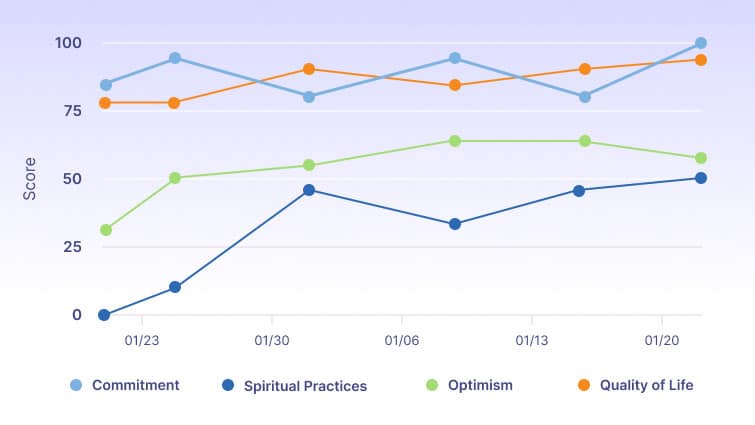Tech Support: (888) 792-7106 Sales & Marketing: (833) 998-7229
Tech Support: (888) 792-7106 Sales & Marketing: (833) 998-7229
Clients self-complete a weekly comprehensive battery of assessments which include a combination of pathology and resilience factors associated with sustained long-term sobriety. Trac9 closely monitors these critical factors throughout the course of treatment, provides abnormal progress alerts and weekly relapse risk levels and clinical suggestions to reduce relapse risk. In addition, a proprietary Trac9 algorithm uses these variables and client demographics factors to predict risk of treatment failure. All allowing for care to be tailored specifically to each client.
Whitepaper: “Clinical Outcomes Tracking: Improving Results for Patients, Payers & Providers.” Click here to download.


Trac9 Informatics monitors clinical symptoms closely to ensure appropriate reduction in pathology over the course of treatment. This goes far beyond symptoms of craving.
Trac9 Informatics measures anxiety, depression, stress, verbal craving and visual cue reactivity of craving.

The vast majority of outcomes systems only assess pathology. This provides only half of the picture. Resilience factors are just as critical to monitoring client progress. The Trac9 Informatics battery monitors commitment to sobriety, optimism, spirituality, and quality of life in addiction recovery – known protective factors in the recovery process.
Trac9 Informatics monitors client progress through nine individual factors associated with sustained, long-term recovery. The assessments include both pathology and resilience factors.
Successful sobriety involves more than just the desire not to drink or use – it also involves hard work.
Spirituality can be complex and fluid, but it plays a huge role in the recovery process.
Assesses individual differences in generalized optimism versus pessimism.
Sobriety impacts the overall wellness in all aspects of one’s physical, mental and social life.
“Am I depressed because I rely upon substances, or do I rely upon substances because I’m depressed?”
Anxiety is the reaction to stressful, dangerous, or unfamiliar situations that can interfere with leading an everyday functioning life.
Verbal craving is the verbal manifestation of intense feelings of wanting to drink or use.
Visual cues can have a powerful ability to stimulate intense feelings of want.
Stress is a key risk factor in addiction initiation, relapse, and maintenance of recovery.
Trac9 is a proven solution for Providers and Payors to enable Value-Based Care.
“The trust that people place in us when they enter treatment motivates us to provide the gold standard of care and innovate. This means that we have to adapt and utilize new treatment methods and tools to help our patients start a new life in recovery. One of those tools is Trac9! We’re very excited about the doors Trac9 will open for us in improving our care even further and embracing our mission to its fullest!”
Ashley Treatment Centers